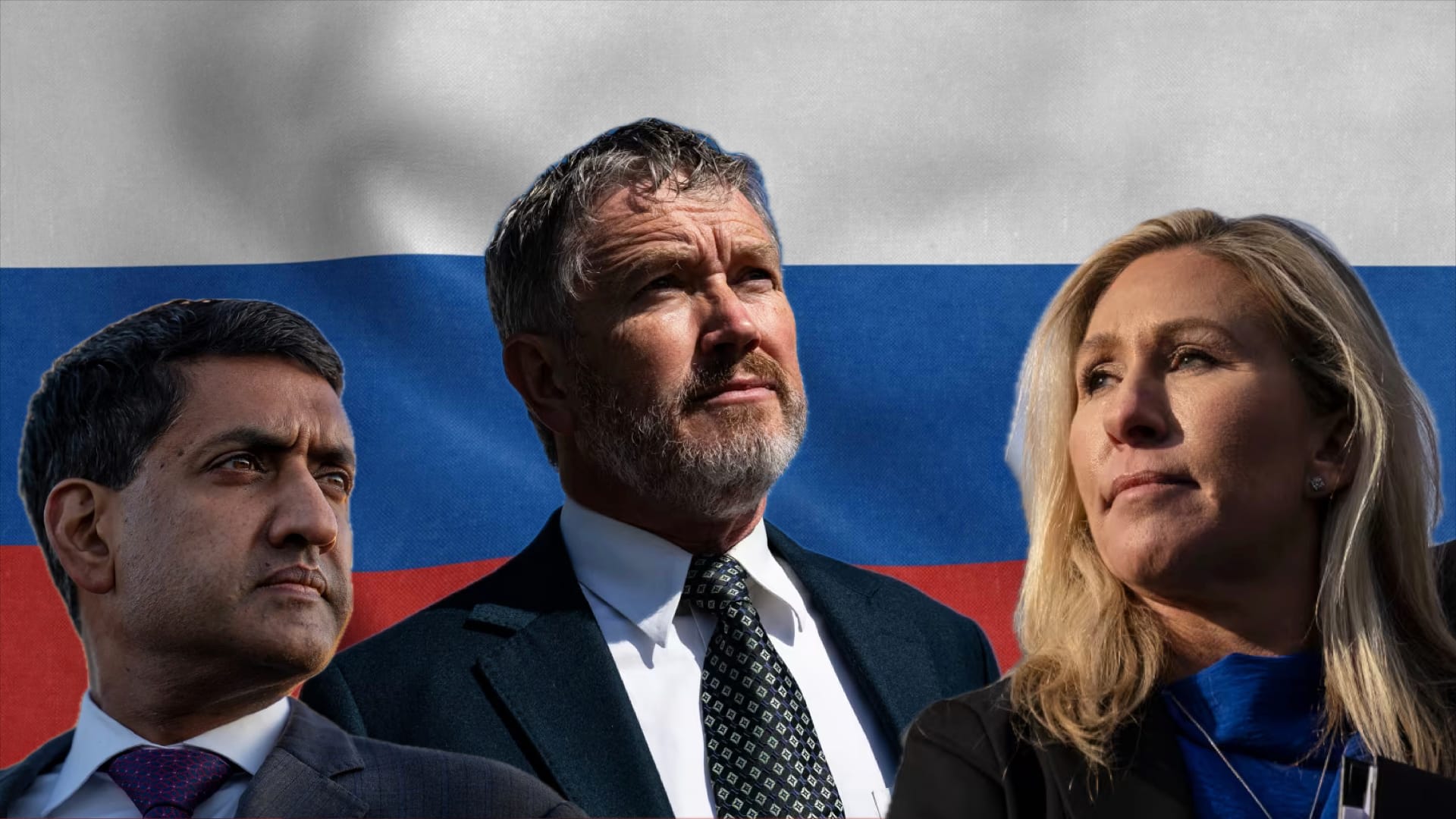Putin’s “Nuclear Psychosis” Ploy Has Deep Roots. Don’t Fall For It (Again).
Russia has leveraged fears of nuclear annihilation for decades in its efforts to manipulate the West. We should use a historical lens when considering whether their threats represent real risks.

In September, documents related to the "Doppelgänger" Russian influence campaign in the West confirmed specific elements of the strategy behind Putin’s attempts to manipulate US and European policy.
According to the “Doppelgänger” affidavit, Sergei Vladilenovich Kiriyenko (described as “First Deputy Chief of Staff of the Presidential Office” and “Putin’s domestic policy curator”) sought two goals, corrected here for grammar: “1. Creation of a nuclear psychosis. The USA has been prepping Europe for a big war with the Russian Federation. War for peace. 2. Exaggeration.”
Putin’s drumbeat of nuclear blackmail has become something of a running joke among analysts, but it’s important to understand these threats as a continuation of the KGB’s Cold War efforts to project power into the West. Since the dawn of the bomb, Soviet intelligence sought to gain capabilities for themselves while undermining Western deterrence.
Immediately following World War II, concerned nuclear scientists (many of whom worked on the ideas that led to development of the bomb, including Leo Szilard and Albert Einstein) advocated against US military control of atomic weapons in favor of other solutions, ranging from world government to regulation by the United Nations.
Soviet intelligence services latched onto this fissure immediately, and dozens of “pro-peace” groups flourished in the late 1940’s and early 1950’s — many of which were directly affiliated with the Communist Party — to play up public fears around nuclear proliferation, all of which were duly amplified by a phalanx of America’s top nuclear scientists and activists who had their own good-faith fears of nuclear annihilation.
Cold War Roots
“One World or None,” published in 1946 by the fledgling Federation of American (later, Atomic) Scientists, suggested that unless humanity submits to a world government to take control of nuclear weapons (including those held by the US), we would be doomed to annihilation. With due respect to the real threat posed by atomic bombs, this “our way or the highway” argument, made by respected scientists, proved useful to Soviet efforts to project power throughout the Cold War.
Whereas 1962’s Cuban Missile Crisis saw “nuclear psychosis” turned up to eleven — and arguably that situation did pose a serious and possibly existential risk — the Soviets saw just how influential such “scares” could be on the American public. Knowing that outcomes in democracies are a function of public opinion, shaping public opinion in the West is a logical basis for any sound Soviet foreign policy.
The most useful Soviet strategy for projecting power and shaping public opinion is Reflexive Control. Diane Chotikul, author of this excellent 1986 paper on reflexive control, describes it as "a means of conveying to a partner or an opponent specially prepared information to incline him to voluntarily make the predetermined decision.” It is, in other words, a way to get an adversary to do what you want, while making them think it was their idea.
Putin’s Ukraine war is in part a weapon of Reflexive Control directed at the West. And to the extent that nuclear fears are an effective cudgel for obtaining desirable outcomes from Western democracies, the conflict has provided numerous opportunities for Putin and his network of proxies to drive the formation of “nuclear psychosis.”
The Primakov Doctrine
Many have heard of the Kremlin's 2013 Gerasimov Doctrine of hybrid warfare, but the lesser-known Primakov Doctrine of 1996 has also been instrumental in shaping Putin's policy towards the West. According to this Carnegie Endowment summary, "a unipolar world dominated by the United States is unacceptable to Russia" and they intend to use the leverage provided by nuclear weapons to backstop both Russia's sovereignty and its efforts to reorder the world.

The Carnegie report further states that "nuclear weapons are Russia’s ultimate guarantee of independence and sovereignty," that offer Putin the ability to "chart an independent course in the international arena rather than following someone else’s lead." The efforts of Kiriyenko and his associates can thus be seen as an expression of the Primakov Doctrine.
Attacks on Zaporizhzhya
Few will forget the crisis at Europe's largest nuclear power plant, in Zaporizhzhya, Ukraine, which was occupied by Russian troops on March 3, 2022 — just days after the ground invasion began in late February. For months, reckless shelling and careless management spawned headlines warning of a nuclear catastrophe bigger than Chernobyl that could render much of Europe uninhabitable.
According to the Doppelganger documents, Kiriyenko ordered the use of the “nuclear psychosis” strategy as early as April 16, 2022. The crisis at Zaporizhzhya delivered information payloads reliably into the West, week after week — all amplified by Kremlin proxy voices such as Jeffrey Sachs and John Mearsheimer.
Elon Musk and “Burnt Hair”
The Wall Street Journal recently reported that Elon Musk has been in regular contact with Russian President Vladimir Putin, as well as Sergei Kiriyenko of the Social Design Agency, named in the Doppelganger affidavit. Among the early warnings that Musk had aligned with Putin was his own fear-mongering about nuclear annihilation on Twitter. On October 11, 2022, he announced that he would develop and sell a new scent called “Burnt Hair,” which would capture the smell of human hair burnt in a nuclear attack.

This idea occurred to him, he indicated, due to the risks being incurred by Western democracies who were challenging Putin in Ukraine. Such a product, which has no legitimate purpose — business, aesthetic, or otherwise — serves only to produce headlines about the risks of nuclear annihilation at the hands of reckless Western leaders.
“Oppenheimer” Film
The 2023 film by Christopher Nolan was an adaptation of the book American Prometheus: The Triumph and Tragedy of J. Robert Oppenheimer by Kai Bird and Martin Sherwin. Bird and Sherwin (whose legitimate concerns were held in good faith) were both close to the 1960’s anti-nuclear networks with which the KGB found common cause. Bird’s book was promoted by Russia’s RT in 2022.
According to Putin hagiographer Oliver Stone, the film was initially offered to him, but he claimed he couldn’t find a way to make it work. With the help of extreme-MAGA actor and producer James Woods, the film found funding and was released in 2023 to great acclaim. Woods initially attempted to conceal his producer credit, fearing that association with him might harm the film’s chances. The film, once again, raises questions about nuclear annihilation, as well as whether Oppenheimer was treated unfairly in the second Red Scare — another favorite topic of the KGB.
“Nuclear War: A Scenario” by Annie Jacobsen

Released on March 26, 2024, “Nuclear War: A Scenario” is a non-fiction account of what a worst case nuclear strike on the United States might look like. In a portrait drawn from multiple interviews with subject matter experts, Jacobsen brings Tom Clancy’s flair for technical details to her play-by-play estimate of an all-out global thermonuclear war. The book sparkles with grim details meant to impart to readers the intense seriousness of our current situation — as if no one had noticed previously.
All of that might be fair game, but the press tour for the book included and was amplified by all manner of Kremlin-friendly voices, including Joe Rogan and Lex Fridman. I won’t guess as to whether Jacobsen’s intent was to create a work product useful to Kiriyenko’s strategy to induce nuclear psychosis, but it is useful for that purpose. The book has also been optioned for a techno-thriller film with Denis Villeneuve attached to direct.
“Fallout” Television Show
Fallout, a television drama series set in post-apocalyptic America and based on a video game franchise of the same name, premiered on April 10, 2024. The series (like many shows and movies before it) depicts America in the wake of a future nuclear war — in this series, a war between the US and China in the year 2077.
The show is co-produced by Lisa Joy and her husband, Jonathan Nolan, the younger brother of Oppenheimer’s Christopher Nolan. Jonathan Nolan, who also co-created HBO’s West World, is a friend of Elon Musk’s. One can only guess whether “Fallout” was intentionally produced to help induce nuclear psychosis, but it’s reasonable to assert that it serves that function. Further, the Doppelgänger affidavit expresses an intention to target gamers, specifically.
The Real Meaning of “Russkiy Mir”
Reflexive control expert Chotikul suggests that Russian demands for “peace” have been historically misunderstood. The word mir has a bi-fold meaning, signifying both peace and world. Says Chotikul, “When Soviet pacifists shout or carry slogans reading Trebuyem Mira, it is commonly translated as we demand peace. An equally accurate translation, however, is we demand the world." Likewise, when the Kremlin makes nuclear threats, it is demanding compliance from the world.
New Escalation Fears in Ukraine
As the Biden administration has finally given permission for Ukraine to use long-range ATACMS missiles to strike strategic targets inside Russia, the Kremlin has predictably responded by cutting undersea communications cables and by updating its nuclear doctrine. They now state that use by Ukraine of conventional weapons provided by a third party nation to attack Russia makes both a legitimate target for nuclear strike.
However, it is difficult to see how this is anything new. The Kremlin has been threatening nuclear strikes for years, and people are becoming desensitized. A "demonstration" detonation by Russia, North Korea, or Iran — perhaps someplace relatively inconsequential — is one way to regain attention. We might expect such a show of force.
But we can easily gauge the Kremlin's seriousness by observing what preparations it makes for a potential retaliatory strike. Watch for signs they are moving strategic assets or relocating into bunkers. As long as it's business as usual in Moscow, their threats are most likely empty.
Conclusion
As I’ve written previously, Donald Trump has made no secret of his desire to partner with Russia to take the world’s nuclear weapons by force. If we expect to deal with the threat posed by Putin, Trump, and Musk teaming up with the world’s dictators to challenge American hegemony, we need to properly understand — and resist — Putin’s “nuclear psychosis” gambit.
The ultimate goal of the anti-Western alliance is the subjugation and dissolution of the United States. And we can only expect to counter that challenge if we break out of the dialectical frames imposed by reflexive control. Additionally, escalation in Ukraine is temporary, and we should expect the incoming Trump administration to appease Putin.
Proponents of democracy globally should seek to initiate new, imaginative frames of engagement that destabilize Putin and his proxies from within, eroding the image held by the Russian people of Putin as being firmly in control.



